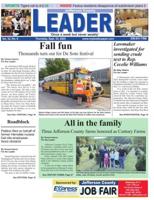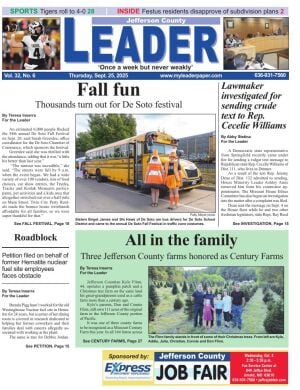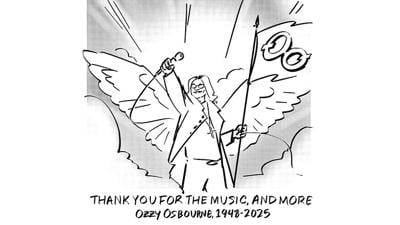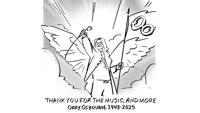Legendary Black Sabbath frontman and heavy metal pioneer John Michael “Ozzy” Osbourne died on July 22 at his home in England.
In a statement from the Osbourne family to CNN, “He was with his family and surrounded by love” at the time of his death.
Whether you are familiar with the “Prince of Darkness” for his music, TV shows or from biting off the head of a bat, most everyone has heard of the rock star.
Even though I was not alive for most of his career, I still feel the weight of his death. From an early age, I have had a keen ear for music, particularly in the rock genre. With my dad growing up in the 1970s and my mom in the 1980s, I have been surrounded my whole life by music from those golden rock years. I remember hearing Osbourne’s songs playing from my dad’s iPod and even stealing the “Diary of a Madman” album from my dad’s record collection and adding it to my own.
I have listened to most of Osbourne’s discography from his time in Black Sabbath to his solo work. One album that stands out to me the most is Osbourne’s 1987 live album “Tribute,” released in honor of and featuring his former lead guitarist Randy Rhoads, who died five years earlier when a plane clipped the band’s tour bus. Rhoads and two others died, including the pilot Andrew Aycock and the band’s hairdresser, Rachel Youngblood.
I don’t know why the “Tribute” album always draws me in, but the live performance of the song “Revelation (Mother Earth)” transcended my love for music in ways few other songs have, and I thank him for that. The underrated song features powerful vocals from Osbourne and showcases the rest of the band members’ musical talent. The song ends with a seamless transition into the next song “Steal Away (The Night).”
Osbourne has been relevant almost every decade since his Black Sabbath band debuted in the late 1960s. The band released most of its discography with Osbourne in the 1970s, but in 1979, he was kicked out of the band due to his excessive drug use. While his departure from the band ultimately led to the beginning of his success as a solo artist, he continued to struggle with drug and alcohol abuse throughout most of the rest of his career.
According to an interview with Apple Music, the singer’s 2020 album “Ordinary Man” was the first album he created fully sober.
“I thought it was the drugs and the alcohol that made it all work,” Osbourne said at the time. “But it’s not true.”
Osbourne’s wife and manager, Sharon, helped the rock star throughout his extensive career, both on the road and at home. Sharon even founded Ozzfest, a rock festival held numerous times since 1996.
In the 1980s, Osbourne conquered the music scene with his solo work, releasing hits like “Crazy Train,” “Mr. Crowley” and “Bark at the Moon.” He continued releasing music into the 1990s, 2000s, 2010s and 2020s. His final album, “Patient Number 9,” even won a Grammy Award for best rock album of the year in 2022.
Osbourne was not only known for his music and iconic presence, but also for starring in the 2000s on his family’s MTV reality show, “The Osbournes,” as well as for his appearances in movies and TV throughout the years.
The outpouring from rockers following Osbourne’s death demonstrates the influence he had on rock and heavy metal. Many artists have taken to social media to tell the world what Osbourne meant to them.
One of the most heartbreaking tributes was written by the modern-day rocker Dominic Harrison, known as Yungblud, whom I’ve had the pleasure of meeting a few times.
“I will never forget you - you will be in every single note I sing and with me every single time I walk on stage,” Yungblud wrote about Osbourne. “Your cross around my neck is the most precious thing I own.”
Ozzy and Sharon were featured in the music video for Yungblud’s 2022 single, “The Funeral,” and Yungblud was featured on The Osbournes Podcast in 2024 when Sharon and daughter, Kelly Osbourne, talked about similarities to Ozzy.
On July 5, just weeks before Osbourne’s death, Black Sabbath played its final performance at a benefit concert called “Back to the Beginning” at Villa Park in Birmingham, England. The concert featured performances by rock icons like Metallica, Slayer and Guns N’ Roses. Yungblud also was one of the guest performers and played Sabbath’s 1972 song, “Changes.” Yungblud’s electric performance has received more than a million views and thousands of shares across social media, further connecting a younger generation to Osbourne and his influence on music.
According to Billboard, the concert raised about $190 million, making it one of the highest grossing benefit concerts of all time. The proceeds from the Back to the Beginning concert are set to be equally split between Birmingham Children’s Hospital, Acorn Children’s Hospice and Cure Parkinson’s.
In an interview with “Good Morning America” in 2020, Ozzy and his family revealed he had been diagnosed with Parkinson’s disease, a neurodegenerative disorder that affects the brain and the patient’s ability to control his or her movements. During the interview, Sharon revealed that Ozzy had been diagnosed in 2003 but kept his health battle a secret until then.
“I’m no good with secrets,” Ozzy said. “I cannot walk around with it anymore because it’s like I’m running out of excuses.”
Despite the battles he faced throughout his life, Osbourne remained a relevant icon for decades. I will never forget the impact the legend had on me and the music I love, and I am sure many others feel the same.




